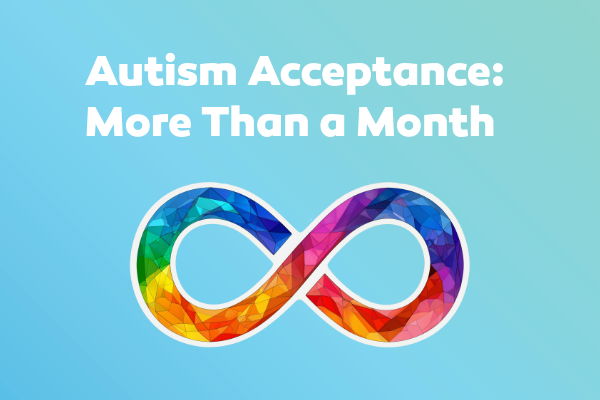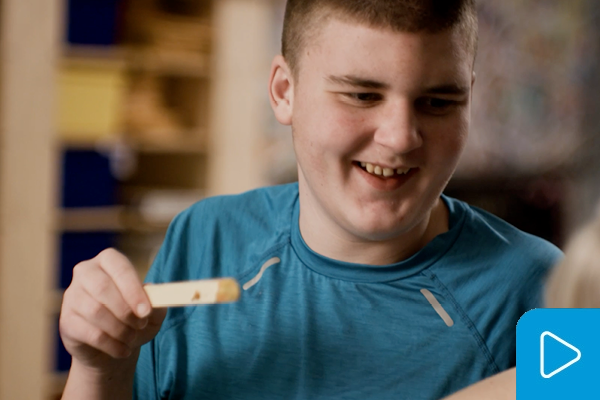2 MIN READ
The Dreaded Grocery Store Tantrum
Tips and tricks to minimize - and cope with - the stress that comes with tantrums
By: Karla Hartlep, MS, LCMFT, Assistant Director of Heartspring Pediatric Services Department

As businesses are opening up, we are venturing out. Our children have been homebodies. Returning our kiddos to daily activities, especially young children with Autism Spectrum Disorder and other special needs, can be challenging, especially when we predict a tantrum in public places. It could be the mall, grocery store, grandma’s house, or even our favorite restaurant. Many of us have been there ourselves. Many others have seen you bravely step into the battle of the tantrum in a valiant effort to help your child through an emotional upset – let us help you make these moments a little easier.
To assist your child with success, here are some proactive steps to take prior to your departure and when you are out in the community:
- Allow plenty of extra time prior to leaving. A rushed departure from home nearly guarantees stress and an upset.
- Praise, praise, praise. Always praise good behavior.
- When getting ready to leave, choose your words wisely. Resist the temptation to say, “Do you want to put your shoes on now?” This invites a “No” response. Instead, say, “Do you want to wear your tennis shoes or sandals?” This invites a choice that will empower your child.
- Difficulty with transitions? Set a timer on your phone for five minutes before leaving. Give a reminder at three minutes and one at one minute. You can use this idea at home, too.
- Again, praise, praise, praise good behavior.
- Before entering an area, give easy-to-understand expectations. For example, “Nice hands, kind words, safe body.”
- Provide a (reasonable) reward for appropriate behavior. This is your child’s currency. Allow them to pick a toy or preferred treat at the very end of the outing.
- Plan ahead. If/when a tantrum does occur, have a plan B in place ahead of time so you can immediately leave the store/restaurant, etc.
Remember, when things go well, no one notices, even parents/caregivers. We tend to take that good behavior for granted. Be sure that when things go well, a celebration happens - one that your child will enjoy.
You all earned it.
When things don’t go so well, everyone seemingly notices. As parents/caregivers, it is very awkward. We see our child’s perceived misbehavior as a reflection on us. It is not. Instead, consider your child as a little person having a tough time. It is okay for them to have big emotions and need to leave and not earn their prize. When consistent, it will go better next time.
It is a learning opportunity.




